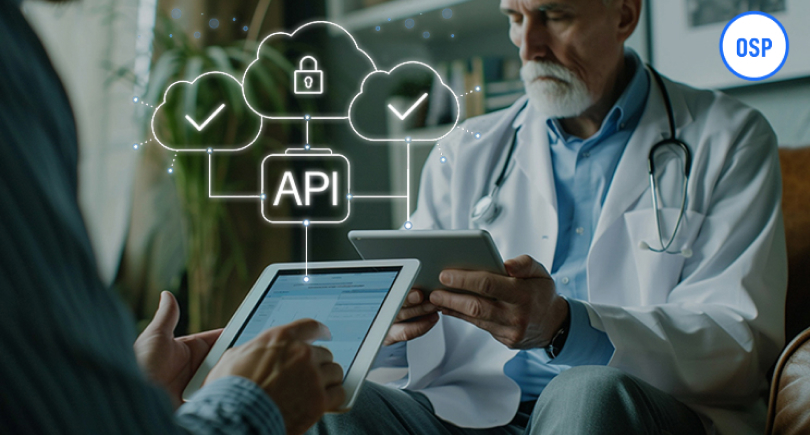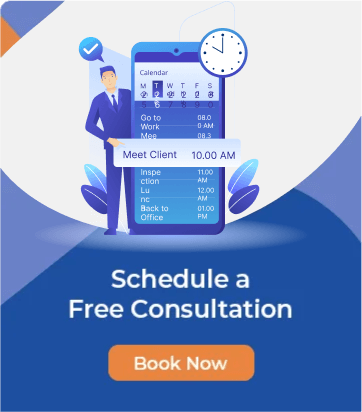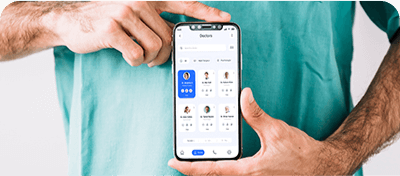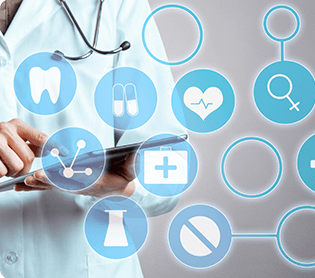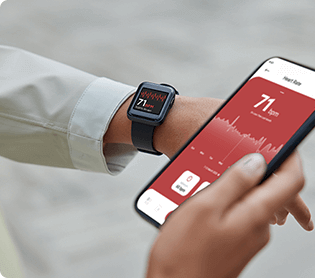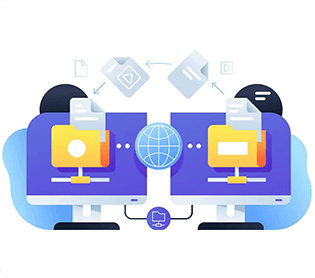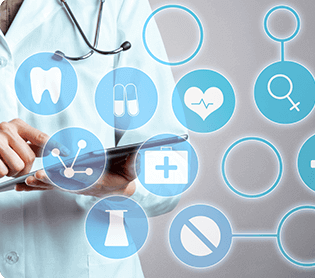The healthcare industry stands at a digital crossroads. While other sectors have transformed their operations through seamless data exchange, healthcare continues to struggle with fragmented systems that trap critical patient information in isolated silos. This isn’t just an IT problem; it’s a patient safety crisis that demands immediate attention.
Enter healthcare API interoperability: the breakthrough technology that’s finally breaking down these digital walls. Unlike traditional integration methods that need an expensive, time-consuming overhaul, APIs in health data interoperability offer nimble, cost-effective solutions that connect EMR systems without disrupting existing workflows.
Transformation is already in progress. Proactive healthcare organizations are utilizing the capabilities of custom healthcare API development services to make previously inaccessible data available and establish a single view of patient health across providers, systems and care settings. The transition is not only optimizing operations, but it is actually saving lives.
However, the path to the actual healthcare interoperability solutions is not easy. The challenge of legacy infrastructure, the strict requirements in using HIPAA-compliant health data APIs, and the difficulty of implementing health data APIs have remained a challenge to even the most technologically advanced organizations. The stakes are simply too high: each day postponed, the opportunities of improving patient outcomes and facilitating care delivery are lost.
But, here is the thrilling fact: health data API solutions are no longer experimental; they are tried, tested, and scaled and can be adopted on a massive scale. In this guide, we will consider six breakthrough healthcare API interoperability use cases that are already changing how healthcare provision, administration and care optimization are delivered throughout the entire healthcare sector.
6 Interoperability Use Cases for APIs
1. Patient-Facing
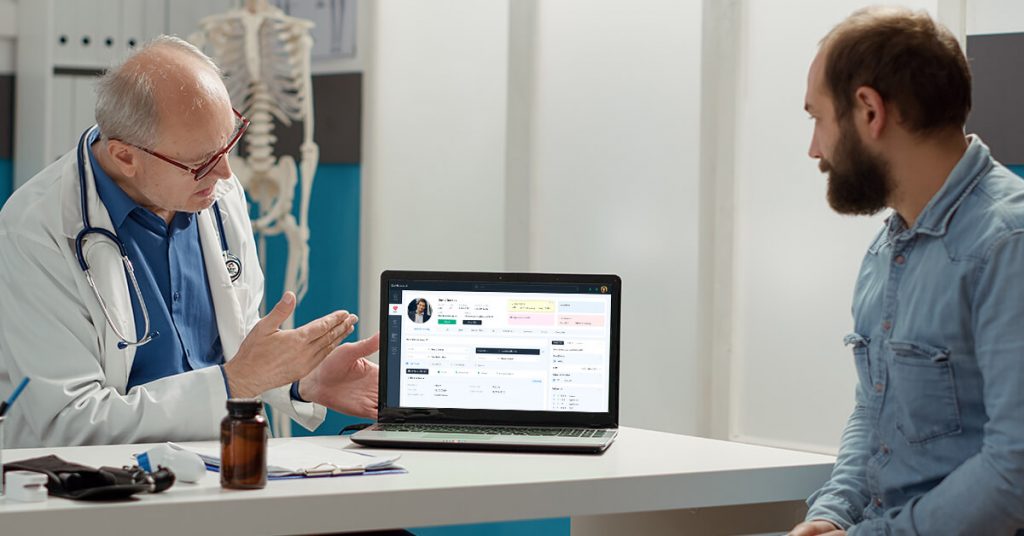
APIs empower patients. Let me tell you how. It takes away the struggle to access their health records through mobile health data interoperability with APIs. This encourages an environment with high levels of information transparency that solidifies patients’ trust in the system and enhances patient engagement.
With regulations such as the CMS Interoperability and Patient Access final rule, healthcare providers and payers are required to support patient access to health data using standardized APIs.
Why is it important? This not only empowers patients to make informed health decisions but also enhances their overall healthcare experience through improved healthcare management capabilities.
For example, Medicaid beneficiaries can now have portable access to their personal health information and payer data, making the healthcare journey more transparent and patient-centric.
2. Provider-Facing

One of the key benefits of healthcare API interoperability is that it allows providers to do more. This is because many EHRs don’t have specific features that are necessary for better care of patients, like growth charts for children or vaccination schedules.
That’s where EHR API integration offers a cost-effective solution and makes it possible for medical service providers to adopt such features into their systems without necessarily spending a lot.
APIs can provide clinical decision-support solutions that are easier to develop, test, and implement compared to traditional EHR upgrades, supporting seamless EHR integration across different platforms.
3. Administrative

It’s usually time-consuming and bulky for medical professionals to engage in administrative tasks, especially prior authorization. Health data API solutions can streamline this process by enabling real-time data exchange between healthcare providers and payers.
For instance, when a medication requires prior authorization, the necessary documents can be submitted and processed through an API, significantly reducing delays in patient care while maintaining health data API compliance.
Automating the prior authorization process using FHIR API interoperability could be a game-changer, making administrative workflows more efficient and reducing operational overhead.
4. Population Health

APIs in health data interoperability can be crucial in promoting value-based care programs. When it comes to enabling bulk exchange of information, APIs allow physicians access to all-inclusive claims data. This leads to better abstracted charts for accurate and enhanced care quality.
The Health Level Seven International (HL7) FHIR Accelerator DaVinci project shows how healthcare API interoperability can facilitate provider-to-payer data exchange for quality measures and patient risk identification.
Still, there exists a hindrance that could deter one from reaping maximum benefits out of APIs, like trust issues between providers and payers in data-sharing initiatives.
5. Public Health

Healthcare API interoperability has immense potential when it comes to public health. It can significantly enhance the monitoring and management of public health issues by facilitating efficient data exchange and reporting among different organizations involved in public health.
For instance, the collection and analysis of health data from laboratories, healthcare providers, and public health agencies can be simplified through APIs for healthcare system integration.
This improves the accuracy of public health data and enables faster responses to emerging health threats. This contributes to better health outcomes at the mass level while supporting comprehensive healthcare interoperability solutions.
6. Social Services
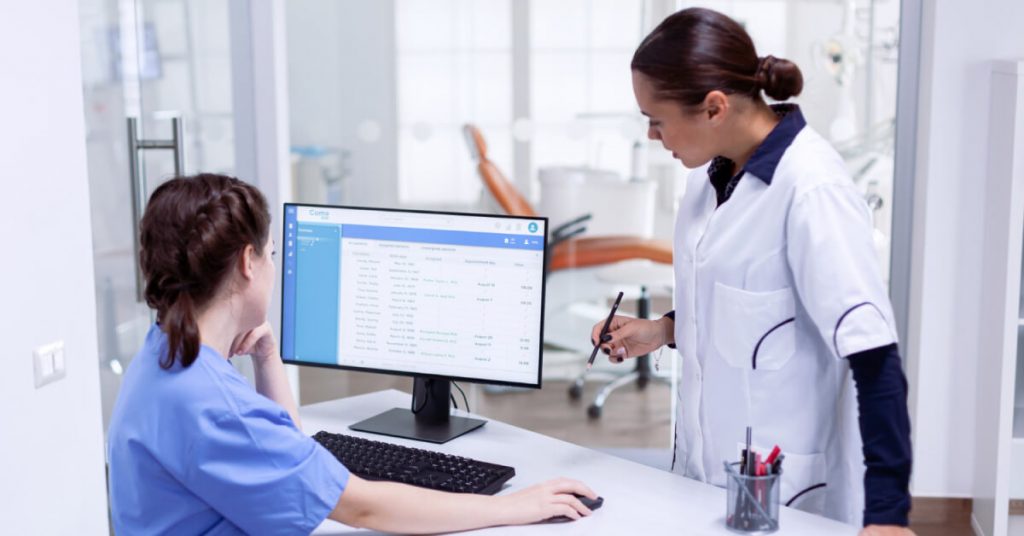
Health data interoperability API solutions are making significant strides in addressing social determinants of health(SDoH). How?
The use of custom healthcare API development services can contribute to the identification and addressing of social needs, such as food insecurity and housing shortages, by increasing data interoperability between EHRs and social service organizations.
Despite this, in many social service organizations, the lack of an advanced IT infrastructure poses a significant challenge due to lack of advanced IT infrastructure. Unlike hospitals, these organizations have not benefited from federal incentives for digital health adoption, and implementing APIs for remote patient monitoring integration is more complex and costly.
Wrapping Up
Healthcare API interoperability provides the healthcare sector with a clear interoperability roadmap through the ability to unify data and enable in-depth decision making, enhanced care coordination, and patient improvements. The given health data interoperability API solutions transform the way healthcare organizations share and use vital information about patients.
With some barriers such as complex IT infrastructure, standardized data elements, and the necessity of collaboration within the industry, the level of API adoption in healthcare is picking up pace. The combination of HIPAA-compliant APIs to health data, telehealth, and remote patient monitoring systems is changing the scenario in healthcare.By learning the specifics of each use case and addressing them, the stakeholders will be able to realize the transformative power of healthcare API integration services. With the industry changing rapidly, having strong health data API integration and full-scale healthcare app development services will become essential to organizations that want to stay ahead of the rest and provide great care to patients in the digital era.
OSP is a trusted healthcare software development company that delivers bespoke solutions as per your business needs. Connect with us to hire the best talents in the industry to build enterprise-grade software.
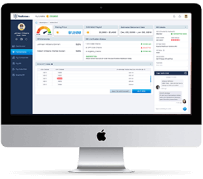
How can we help?
Fill out the short form below or call us at (888) 846-5382
Discuss Your Project Handover with a team of expert Book a free consultation arrow_forward
About Author

Written by Riken Shah linkedin
Riken's work motto is to help healthcare providers use technological advancements to make healthcare easily accessible to all stakeholders, from providers to patients. Under his leadership and guidance, OSP Labs has successfully developed over 600 customized software solutions for 200+ healthcare clients across continents.







